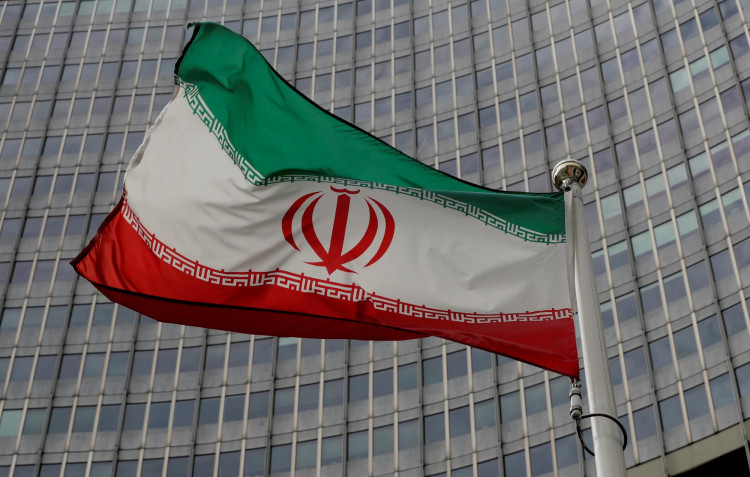As tensions between Israel and Iran continue to escalate, a senior Iranian Revolutionary Guard general has issued a chilling threat to "obliterate all the Zionists." Gen. Ali Fadavi, deputy commander of the Iranian Revolutionary Guard, made the statement during a funeral service in Tehran, where he mourned a general killed in an Israeli airstrike that also targeted Hezbollah leader Hassan Nasrallah. "If we will, we can obliterate all the Zionists," Fadavi said, underscoring the severity of the conflict between Israel and Iran-backed forces in the region.
Fadavi's remarks come amid a growing wave of violence that has spread across Israel, Lebanon, and Gaza. Israeli airstrikes targeted northern Lebanon on Monday, killing at least 21 people, including women and children, according to the Lebanese Red Cross. The strike hit the village of Aito, a predominantly Christian area far from Hezbollah's usual operational zones, raising concerns over the widening scope of the conflict.
The Israeli military has remained silent on the specific target of the strike in Aito, and it remains unclear why the area was chosen. This incident is just one of many in the series of escalating retaliatory attacks between Israel and Hezbollah, the Iran-backed Lebanese militant group. Hezbollah has been engaged in almost daily cross-border exchanges of fire with Israel, exacerbating the region's instability.
The past year has seen Hezbollah significantly ramp up its involvement in the conflict, largely in solidarity with Hamas, another Iran-backed group. Since Hamas launched its deadliest-ever attack on Israel in October, killing 1,200 people and taking hundreds hostage, Hezbollah has been conducting almost daily rocket and mortar attacks on Israeli positions.
Hezbollah's attacks have drawn intense retaliatory strikes from Israel. In the southern Gaza Strip, Israeli airstrikes have killed at least 15 people, including six children and two women, according to Palestinian medical officials. In northern Gaza's Jabaliya area, where Israeli forces have been conducting a prolonged air and ground offensive, civilians remain trapped in their homes and shelters, unable to flee amid the bombardment.
Israeli airstrikes have killed approximately 42,000 Palestinians in Gaza, according to local health authorities, though these numbers are not broken down to distinguish between militants and civilians. Many of the dead are reported to be women and children, further inflaming regional and international tensions.
Amid the escalating conflict, U.N. peacekeepers stationed in southern Lebanon have come under increasing fire. Since Israel began its ground campaign against Hezbollah, at least five peacekeepers have been injured, most of the attacks blamed on Israeli forces. Israeli Prime Minister Benjamin Netanyahu has urged U.N. forces to vacate the area, citing concerns over their safety. Meanwhile, the European Union condemned the attacks, rejecting Israeli claims that the U.N. presence is obstructing military operations.
"We will continue to strike Hezbollah without mercy everywhere in Lebanon-including Beirut," Netanyahu said after visiting the site of a recent Hezbollah drone attack that killed four Israeli soldiers. The drone strike, which also injured 60 soldiers at the Golani Brigade Training Base north of Tel Aviv, marks a significant escalation in the conflict. Netanyahu vowed to continue the fight, stating that despite Israel's "painful price," the military has achieved significant victories and will persist in its operations.
Iran's involvement in the conflict has grown more direct in recent weeks. Iranian forces launched hundreds of missiles into Israel on October 1, further exacerbating the already volatile situation. These attacks have drawn sharp responses from Israeli leadership, with air raid sirens ringing out across northern Israel, including in Haifa and surrounding towns.
While Israel's air defense systems have successfully intercepted many of these missile strikes, the continued threat from Iran and Hezbollah has heightened fears of a broader regional conflict. Hezbollah's expanded role, alongside other Iranian proxies, has turned the once localized conflict between Israel and Hamas into a multi-front war involving several state and non-state actors.
The death of Hezbollah's top commander, Hassan Nasrallah, in an Israeli airstrike has shaken the group's leadership. Rumors had circulated for weeks about the fate of Gen. Esmail Qaani, head of Iran's Quds Force, who appeared in public for the first time after weeks of speculation. Qaani had been rumored to have been either killed or held under suspicion of involvement in Israeli infiltration operations. His appearance at a memorial service in Tehran for General Abbas Nilforoushan, killed in the same airstrike as Nasrallah, marked the first confirmation that he remains alive and in command.
Israel's strikes against Hezbollah in Lebanon have crippled much of the group's infrastructure, with reports of significant intelligence breaches also surfacing. These breaches have left Hezbollah vulnerable, with key communications networks disrupted and the leadership structure weakened.




